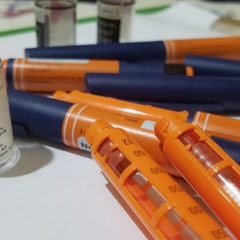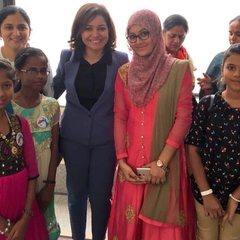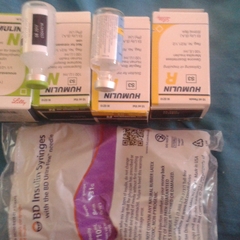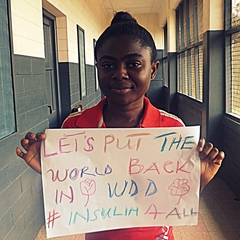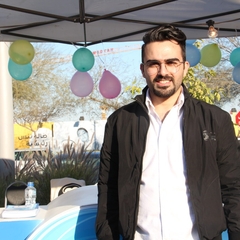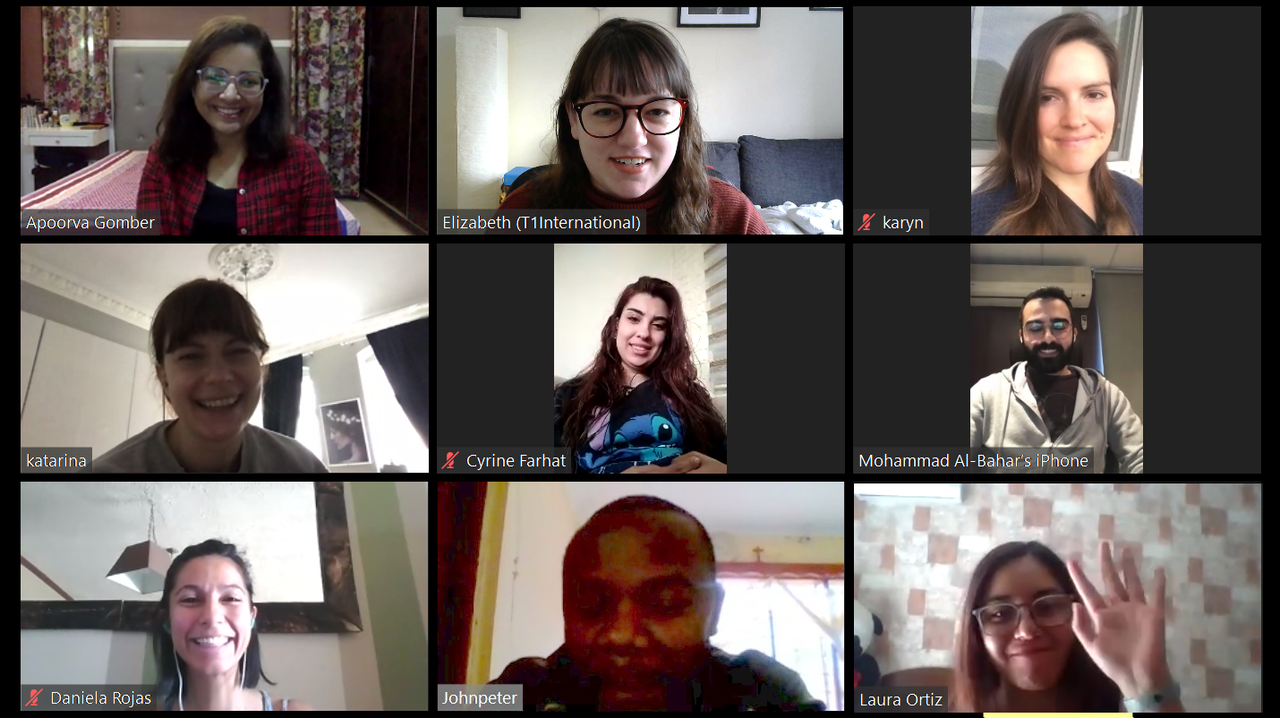
Global Type 1 Diabetes Coronavirus Perspectives
10 Apr 2020, 10:41 a.m. in Global Stories by T1International
Ten people living with type 1 diabetes share their perspectives about the impact of the coronavirus on their country and their health.
Bolivia – Laura
Things are complicated here, and our health system is already problematic. There are no masks and a lack of other correct equipment to treat patients. The government has been very careful about prevention, and quarantine has been going on for several weeks already. Many people are poor and live day by day with what they earn. The government began to give money and food aid to older people and families who receive other types of government bonds, but not everyone can receive it and many say that they do not have enough money to eat. Based on the numbers on our identification, we know when we can go out to get groceries or medications – only on specific days. Still, there is a lot of ignorance and people are not following instructions. There are 200 cases confirmed, with 15 deaths and it is increasing every day. People who have to travel long distances to get medicine do not have good options. I have a friend who has no blood glucose test strips and her blood sugar keeps going too high, but because she does not have test strips, she doesn’t know it. It is very dangerous.
Costa Rica – Dani
Our small country is on lockdown, with only 10 people in ICU at the moment. The country is making at-risk patients a priority and currently even shipping their medicines to them to prevent them from going to the hospital and getting infected. Families have been given extra insulin for the next two months, and the community is supporting each other if there is an urgent need for support or extra supplies.
Germany – Katarina
Germany has one of the lowest COVID-19 related death rates so far. A lot has been undertaken to prevent the virus from spreading - test centres have opened their doors to the general public, hospitals are increasing their capacities for intensive care and ventilation, and research teams are working hard to improve diagnostics, therapy and find preventative methods. The pandemic is challenging our healthcare system, our economy, and our society, but it also opening new pathways. A lot of diabetes care centres are transitioning to telemedicine, and people with diabetes can get prescriptions and supplies by mail. Being a doctor on the frontline and a high-risk patient at the same time is not easy – I am constantly torn between my profession and my wish to self-isolate and stay safe.
Ghana – Yaa
With the rise in COVID 19 cases in Ghana, the government made it mandatory to close down schools for a month, to limit the number of people to no more than 25 in a social gathering, and to start a two week partial lockdown in contiguous districts (3 regions). This means no one is allowed to go out unless it is to buy food and drugs. Borders are closed, and importation of goods are restricted. For people with type 1 diabetes who get supplies at the government hospital using the national health insurance scheme, they still have to go all the way to the hospital for their supplies. The hospital is a major reservoir of the virus, so it increases the chances of people with type 1 who are already at high risk. The only other option is to go buy from the pharmacies, where there is currently a surge in prices. People with diabetes were asked and encouraged to stock up on their diabetes supplies, but not everyone was able to do this. We fear for the unknown and the long term impacts.
India – Apoorva
As a medical doctor I have been working and seeing new cases, but now my entire department is in isolation. I took steps back to prevent getting sick. Delhi is one of the hotspots, and we had sudden surge in cases. Rural impoverished areas are problematic due to people living in close quarters. Our government initiated a lockdown, but many tried to leave quickly, especially migrant workers who come and go from the city centres because they lost their livelihoods. This caused the virus to spread despite drastic measures taken by the government. Currently, there are no insulin shortages as all medical services and pharmacies are operational, but we have seen a possibility of analogue shortages and hope to try to ensure that does not happen. Our main aim is to support the actions of the government and I plead everyone to stay home and protect their families.
Kuwait – Mohammad
We have been on lockdown for four weeks, and people who came to Kuwait from other countries were tested. If someone had symptoms, they were put in quarantine. Cases have been contained and so far, there has only been one death. It is interesting that there is now a COVID-19 database that was created rapidly, but there has never been a database of people with type 1 diabetes in Kuwait. Our medications tend to be provided and some are being delivered. Overall, things are OK now, but we are concerned about access to medication and food supply in the long term because most of it is imported.
Lebanon – Cyrine
Our country has been facing tricky political problems for the past five months, since we had a revolution in November. The banks have no money, and there is no money from the government. We can only have access to a specific amount of our money per month. We are facing shortages of medical supplies including ventilators and medical protective equipment. The whole country is in an emergency state now and there are military personnel on the streets. As cases continue to rise, people are only allowed to go out at certain times and we can only walk. I have been on self-quarantine for the past few weeks. What worries me most is the people who already struggled to afford their basic insulin and supplies. With 80% or more of the population having lost their jobs, what are those who cannot afford their insulin doing now? I am trying to help those I know about, but there is no government plan for people with type 1 diabetes. People do not have money anymore, so how can they cover their insulin costs?
South Africa – Estelle
Testing here is slow. On April 2nd, I heard only 46,000 tests had been done, which is not even 1% of the population. It looks like we have small numbers of diagnosed patients but there is so much unknown. Apparently there is enough stock of medication for up to a year. Medical aid, our version of insurance, said they will cover all treatment related to COVID-19, so that is a relief. A large proportion of individuals might not be taking it seriously enough. The biggest concern is keeping the virus out of the rural areas, which are densely populated. If it spreads there, it could be catastrophic because we do not have enough hospitals.
Tanzania – Johnpeter
We only have about twenty cases identified so far. I am currently in Serengeti which means I am far from cities where cases were confirmed and spreading. I am staying put and I had to cancel my doctor appointments and other appointments. I have had to reduce my insulin dose because I cannot get any insulin here in this rural area. I have some insulin in Dar es Salaam that my doctor gave to my brother for me. So right now I am working with my brother to try to find a way to get the insulin. I am not supposed to travel to cities to risk my health, but I am risking my health by staying here without insulin. It is incredibly stressful on top of the challenges I already face accessing and affording my insulin.
USA – Karyn
In Georgia, where I live, we are also on lockdown, with cases increasing every day. The biggest issue is shortages of ventilators and protective equipment for hospital staff. Cost and affordability issues are already a problem in the USA and this will likely be an even bigger challenge now. Due to the broken healthcare system here, it’s uncertain if people will even get tested if they go to the doctor. Some people are getting billed for the test even though it has been said they shouldn’t be. Last year around this time, I went to Canada to buy a year’s supply of insulin. I have a bit more, but I’m not sure what I’m going to do without being able to travel abroad this year. I already struggle a lot with the costs. Many people are losing their jobs, and therefore losing their insurance, which will inevitably also impact their ability to afford essential medicines.





